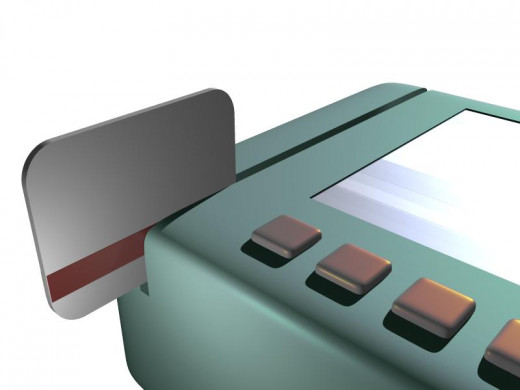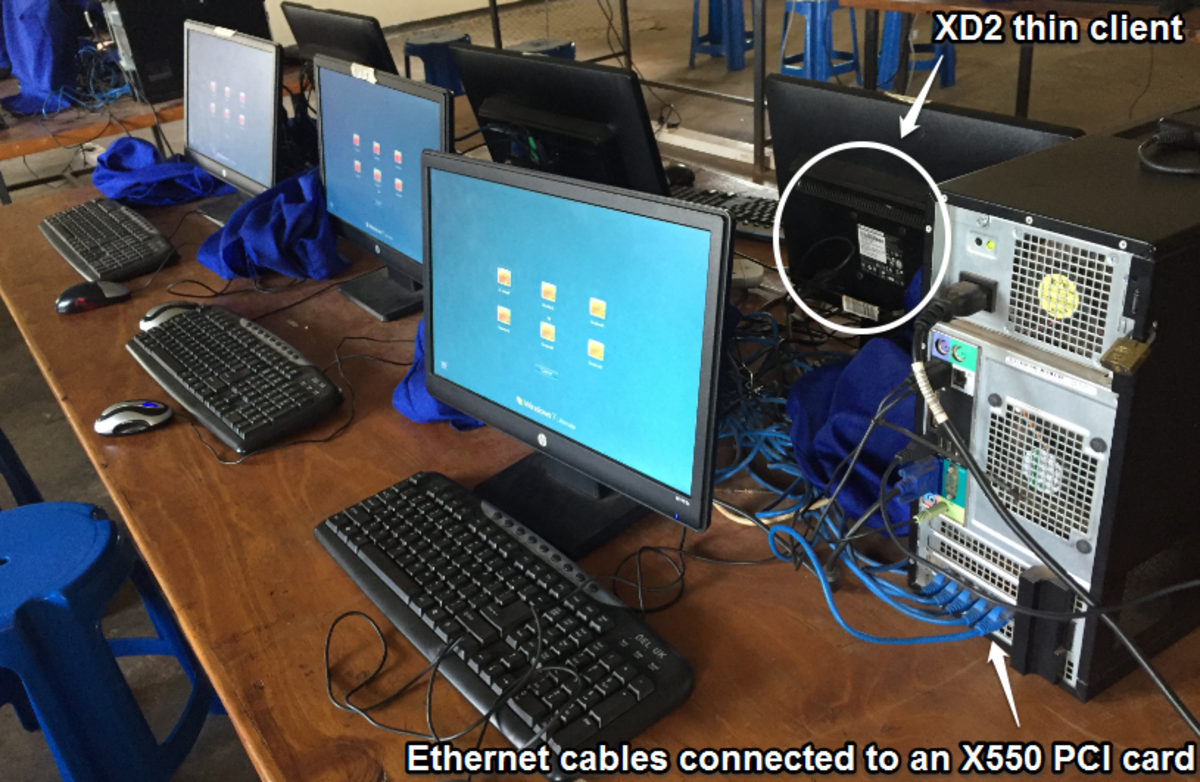The Single-Card Economy

A typical person today usually has several different cards in his wallet. He may have a plastic time card that he uses to punch in and out at the time clock at the factory where he works. To use it, he simply 'swipes' the card through a slot in the time clock and the time he came to work is automatically recorded by the computer. He may also have a digital bus card. When he gets on the bus to ride to work, he swipes his plastic card through a slot in a card-reading device on the bus to pay for the bus ride. After he finishes his day at work, he may go to to store to do some shopping, and he pays for the things he bought with a plastic debit card that he swipes through a slot in the store's cash register. A typical person may have half a dozen cards in his wallet, including a credit card, debit card, bus card, and a time card from the factory where he works.
Suppose all the cards he carries in his wallet could be combined into one single card. That would be the basis for the single-card economy. With a single-card system, you would need only one card to pay for bus rides, to check in and out at the time clock in the workplace, or to make purchases at stores.

In a single-card system, the plastic card would be capable of supporting special functions. Suppose that you worked for a company that allowed you to take a day off, so you could visit your doctor. In the old days, you would have to bring in a letter from the doctor to prove that you had actually been to the doctor. In the single-card economy, you would use your card to clock in at work every day, and you would use the same card to check in at the doctor's office. When you arrived at the doctor's office, the first thing you would do is swipe your card though a slot in a card-reading device on the receptionist's desk in the doctor's office. Swiping your card at the doctor's office would automatically send a signal to your employer, to verify that you had actually been to the doctor. If the doctor decided to write a prescription for you, you would go to a drugstore to have the prescription filled, and you would swipe your card at the drug store, to verify your identity, and also to pay for the prescription.
The same card would also be capable of performing non-financial functions, where no money is actually exchanged. For example, if you went to a public library, to borrow books, you could use the same card to borrow the books, although no money is charged for this service. The card in a single-card system could be used for a variety of financial transactions, and it could also be used for a variety of non-financial functions, such as time-keeping, time verification, verification of doctors appointments, etc. The card in a single-card system may also be capable of paying for parking fees at specially-equipped parking meters, and also for purchasing items from specially-equipped vending machines. Government agencies may also participate in the single-card system. For example, suppose you were called in for jury duty. When you arrived at the court, you would swipe your card to identify yourself. If you had to get license plates for your car, you could swipe your card to identify yourself.
The cards used in a single-card system may be issued by banks or credit unions. It may also be possible for these cards to be issued by labor unions, or other organizations. The single-card economy will also support the use of digital currency, assuming that, in the future, we all may use digital dollars instead of traditional dollars that are printed on paper.
Anthony Ratkov, October 6, 2013.







